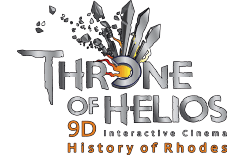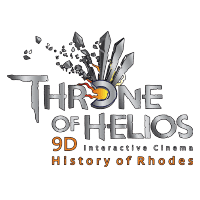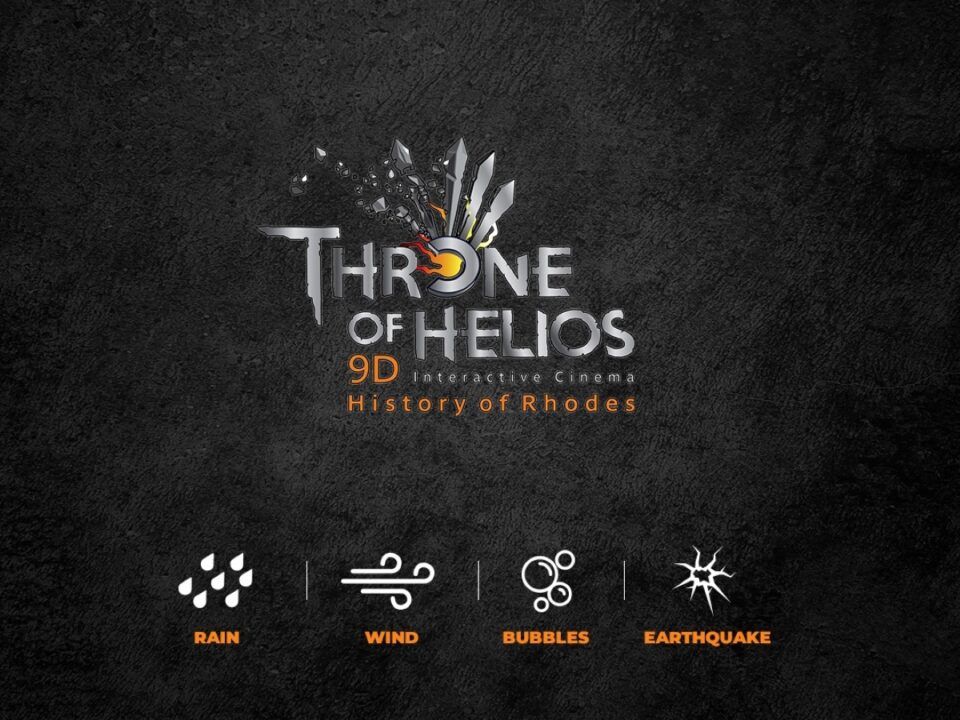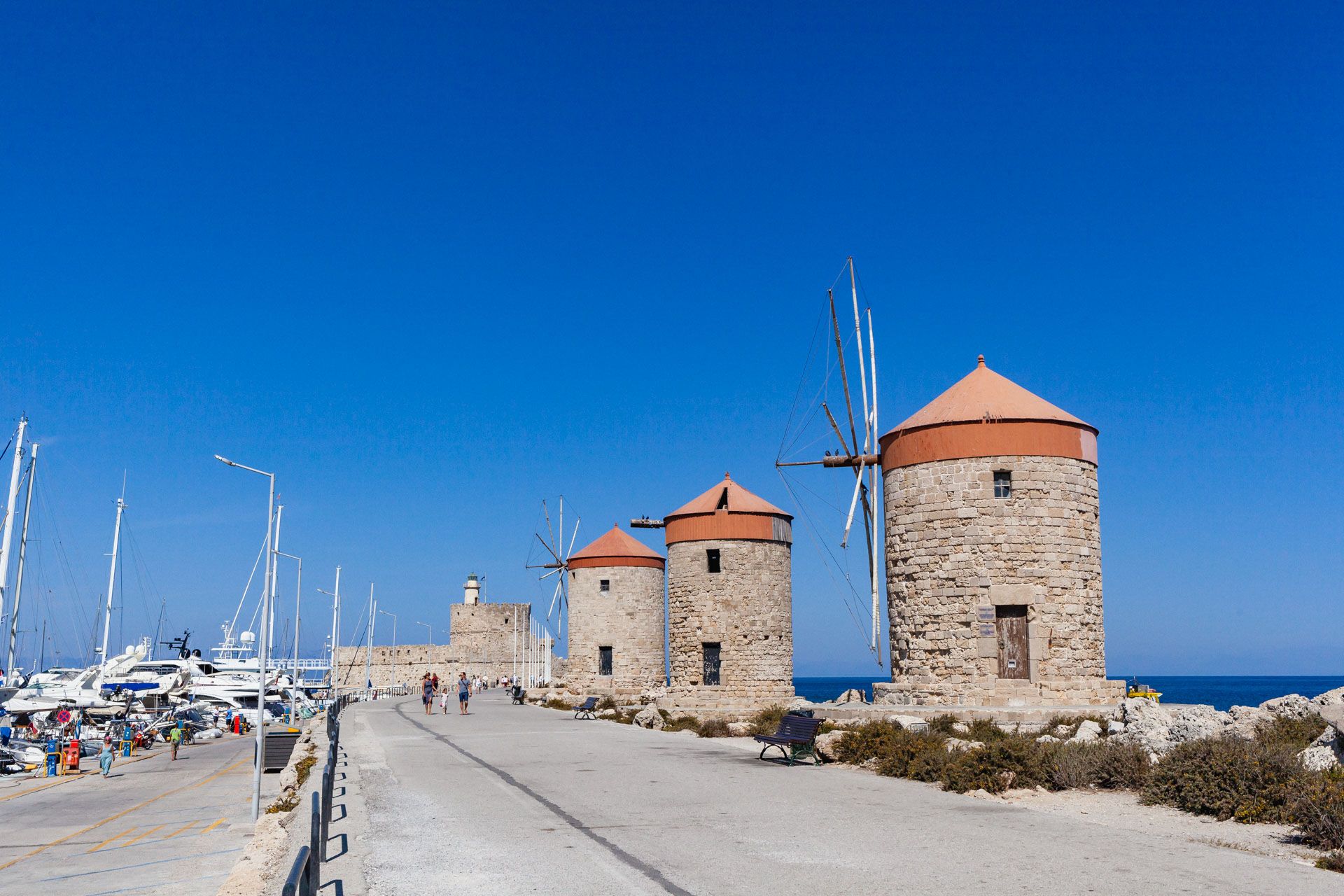
Windmills of Mandraki
July 20, 2022
TUI Sustainable Supplier Diploma for Throne of Helios
September 9, 2022- Ancient Greeks lived over 3000 years ago. Their civilisations followed a Dark Age in Greece, which is thought to have ended in 800 B.C. For the most part, Ancient Greece was divided into several small city-states, each with their own laws, customs, and rulers. However, in the 300s B.C., these small city-states were forced to unite under one ruler: Alexander the Great. He was the founder of the Ancient Greek Empire, which stretched into Europe, Egypt, and South-West Asia.
- The Greeks had some strange superstitions about food – some wouldn’t eat beans as they thought they contained the souls of the dead!
- The Ancient Greeks were descended from the Mycenaeans, who were also the first writers and speakers of ‘Ancient Greek’. A famous legend tells how, in 1180 B.C., the mighty Mycenaeans conquered the city of Troy – by hiding inside a giant wooden horse! The horse was left outside the city’s walls and, thinking it a gift, the people of Troy wheeled it inside… only for the sneaky Mycenaean soldiers to creep out and seize the city!
- Did you know that the Ancient Greeks invented the theatre? They loved watching plays, and most cities had a theatre – some big enough to hold 15,000 people! Only men and boys were allowed to be actors, and they wore masks, which showed the audience whether their character was happy or sad. Some of the masks had two sides, so the actor could turn them around to change the mood for each scene.
- Most Ancient Greeks wore a chiton, which was a long T-shirt made from one large piece of cotton. The poor slaves, however, had to make do with a loincloth (a small strip of cloth wrapped around the waist)!
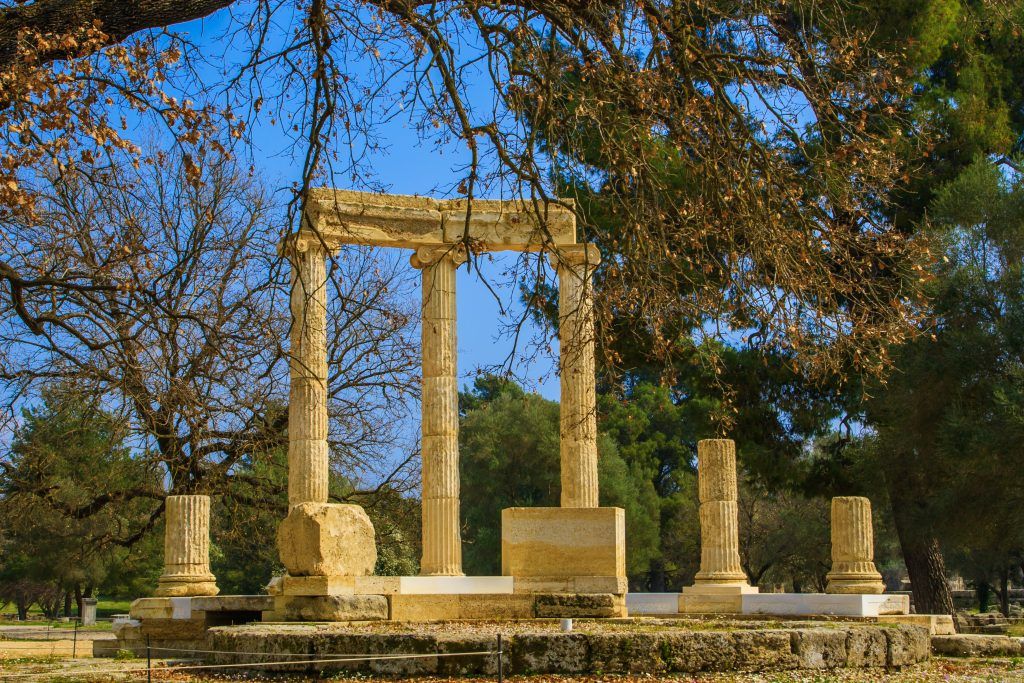
- The Ancient Greeks held many festivals in honour of their gods. To celebrate the god Zeus, for example, the first Greek Olympics were held in the city of Olympia in 776 B.C. and are thought to have inspired our own Olympic Games! The winners of each event were given a wreath of leaves, and when they returned home, they would be given free meals and the best seats in the theatre!
- Statues of Greek gods and goddesses were placed inside temples, the most famous of which is the Parthenon. This temple in Athens was built for the goddess Athena, the protector of the city.
- Events at the Greek’s Olympics included wrestling, boxing, long jump, javelin, discus and chariot racing. But those taking part in the wrestling event had to be the toughest, as there were hardly any rules – and they had to compete naked.
- The Ancient Greeks had lots of stories to help them learn about their world. The gods featured heavily in these tales, and so did mythological monsters – like Cerberus, a three-headed dog that guarded the gates to the underworld; Medusa, a slithery sorceress whose look could turn people to stone; and the Cyclops, who had one eye in the middle of its forehead – yikes! These tales are known as Greek mythology
- The city-states were often at war, but just before the Olympics, a truce would be called so that everyone could travel to Olympia safely.
Learn more about the history of Ancient Greece through the educational films on the Throne of Helios!
